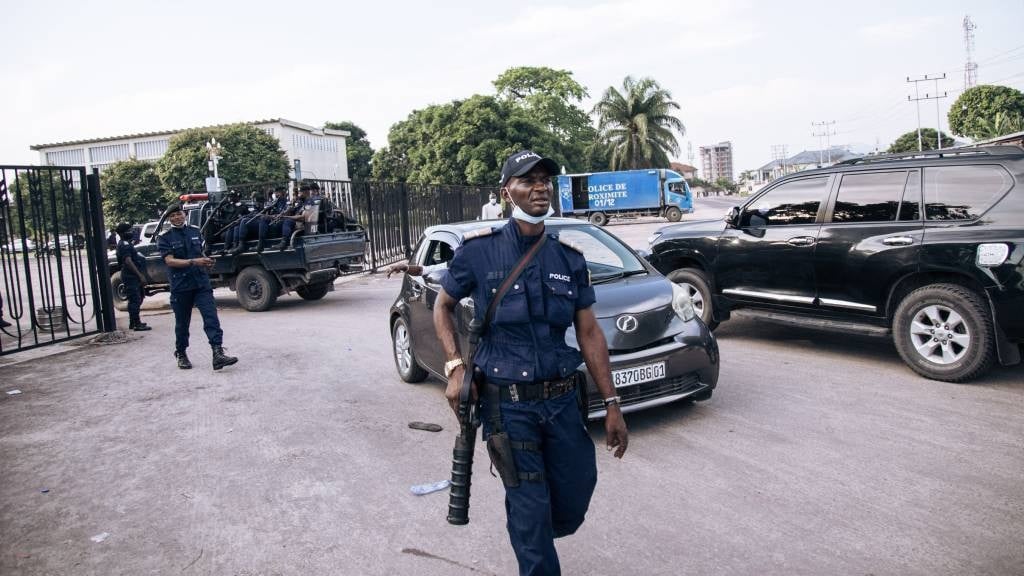
Congolese policemen are seen outside the Parliament in Kinshasa. (Alexis Huguet/AFP)
Observers are approaching the latest truce signed between the Democratic Republic of Congo and M23 rebels with great caution,following numerous failed attempts at keeping the peace in the past.
The latest peace offensive,brokered in Qatar,comes after thousands of deaths in the DRC in recent months alone.
"By mutual agreement,both parties reaffirm their commitment to an immediate cessation of hostilities,categorical rejection of any hate speech and intimidation," read the joint statement released by the two parties on Wednesday.
But amid these tentative hopes for a lasting ceasefire,another development in the country seems to have overshadowed the headlines.
ADVERTISEMENT
Former Congolese president Joseph Kabila was reportedly spotted in recent days in the eastern town of Goma,which has been under the occupation of M23 rebels for several months.
READ |Kagame tells countries sanctioning Rwanda to 'go to hell'
This alleged appearance of Kabila in Goma has not only generated a fiery debate on social media,but rumours of his return appear also to have angered the Congolese government.
In response to the reports,the Congolese government decided to suspend Kabila's People's Party for Reconstruction and Democracy (PPRD) and issued travel restrictions on his family and political allies. His political party has not yet commented on the allegations.
ADVERTISEMENT
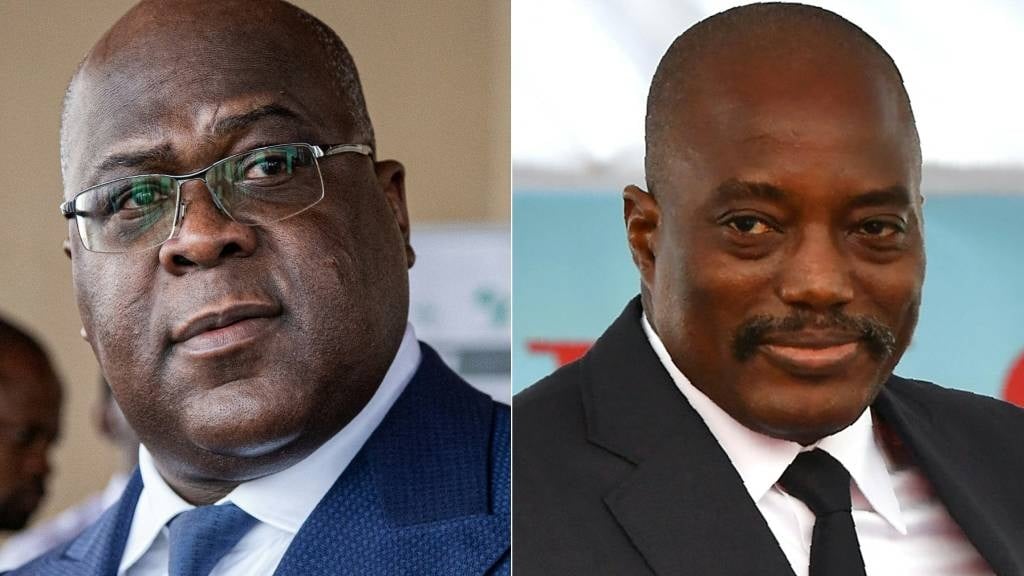
This combination of file pictures shows the President of Democratic Republic of Congo Felix Tshisekedi (L) and former President Joseph Kabila. (Tchandrou Nitanga and Tony Karumba/AFP)
AFP
But Amani Kakimba,a PPRD supporter,believes the allegations are unfounded.
"No one has shown a photo or video proving Kabila's presence here in Goma," Kakimba explained,adding Kabila should be at liberty to return to his country anyway,as there are no reasons for him to hide "as a free man".
Kinshasa reacts to reports of Kabila's return
However,the government might view things differently.
Kabila's return to Goma,which is under the control of M23 rebels,could be considered as an act of high treason by the Congolese government,since the group is propped up by the Rwandan government - technically a foreign agent.
The interior and justice ministries have announced the initiation of legal proceedings against the former leader,as well as the seizure of Kabila's assets.
But Yvon Muya,a researcher at the School of Conflict Studies at Saint Paul University Ottawa,Canada told DW that seizing Kabila's assets could be a grave mistake.
He said:
Kabila is a former head of state. He commands so much respect in the army and the country's political system. Seizing his assets is just going to further worsen the situation.
Kabila has not made any public appearances nor issued a statements about his supposed arrival in the DRC,keeping in line with his public image.
"Kabila has always been an enigma. Whether he was in power,or outside," said Nkere Ntanda from the University of Kinshasa. The political science expert told DW that he agrees that the return of Kabila should not be a threat to anyone.
An uneasy alliance
Incumbent President Felix Tshisekedi,however,does appear to consider Kabila a threat - one that could be destructive to his grip on power.
Kabila was president of the Democratic Republic of Congo for 18 years until 2019.
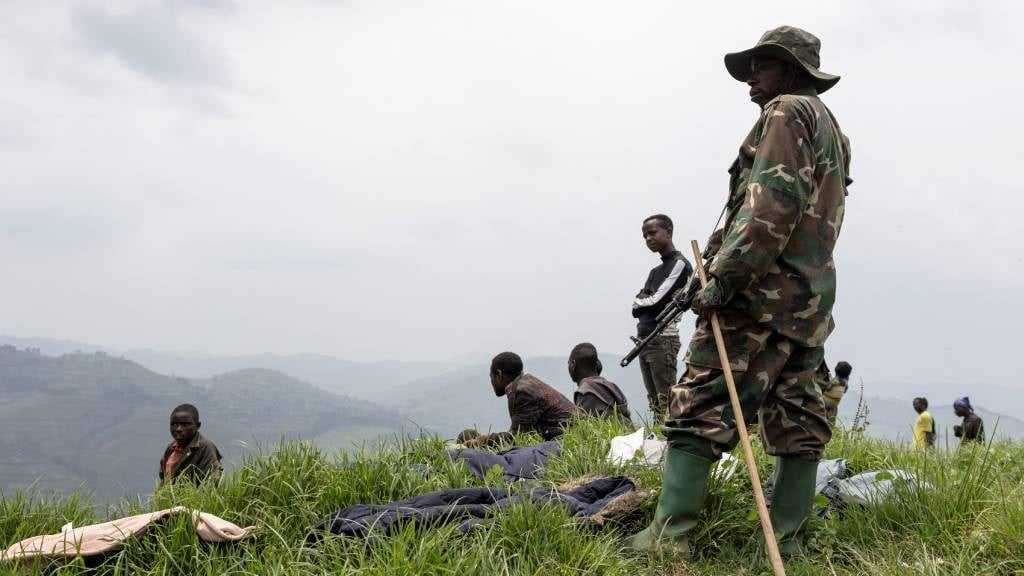
A M23 soldier stands at the Coltan mining pits in Rubaya. (Camille Laffont/AFP)
AFP
Eventually,Kabila forged a coalition with Tshisekedi but soon after went into self-imposed exile in South Africa in 2023,following a fallout between the two leaders.
That fallout is likely linked to another senior name in regional politics and the overall conflict: Corneille Nangaa,leader of the Congo River Alliance (AFC) movement,which sees the M23 rebels as their military wing.
ADVERTISEMENT
Nangaa was named to lead Congo's election commission in 2015 by then-President Kabila,and also oversaw the 2018 election to choose Kabila's successor.
However,the latter of the two elections in particular was riddled with accusations of fraud,with numerous reports finding that Tshisekedi's rival,Martin Fayulu,had actually won the vote.
But Tshisekedi was named the winner of the election regardless.
'Kabila needs to clarify his position'
Due to his association with Nangaa,Kinshasa has repeatedly accused Kabila of supporting the M23 group.
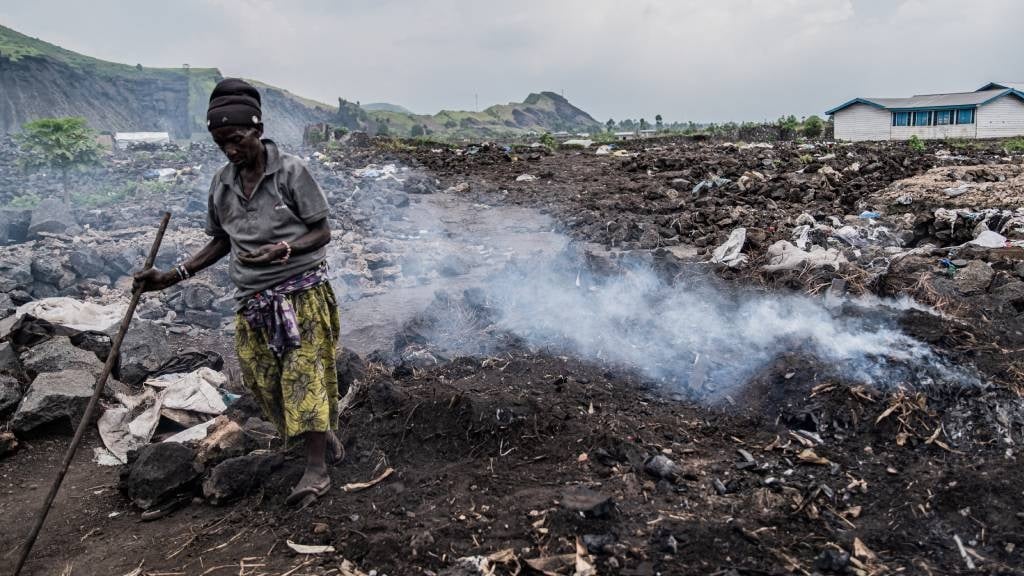
A displaced woman reacts after dismantling her shelter in the Bulengo internally displaced persons (IDP) camp after it was burned down,in Bulengo. (Jospin Mwisha/AFP)
AFP
But Muya has said it's at the very least "disputable" that Kabila could support the separatist M23 group in any capacity.
"He fought the same rebel movement when he was president," he told DW.
"The government's response seems to be exaggerated. This is establishing a dangerous precedent between government and the opposition," Muya said,expressing concern over the reach of the government's powers on individuals under Tshisekedi's leadership.
Muya,meanwhile,also stressed that it would be in Kabila's best interest if he clarified his position on the ongoing conflict as well as publicly explain his alleged ties to rebel groups and their leaders like Nangaa,to ensure that his motivations cannot be misinterpreted.
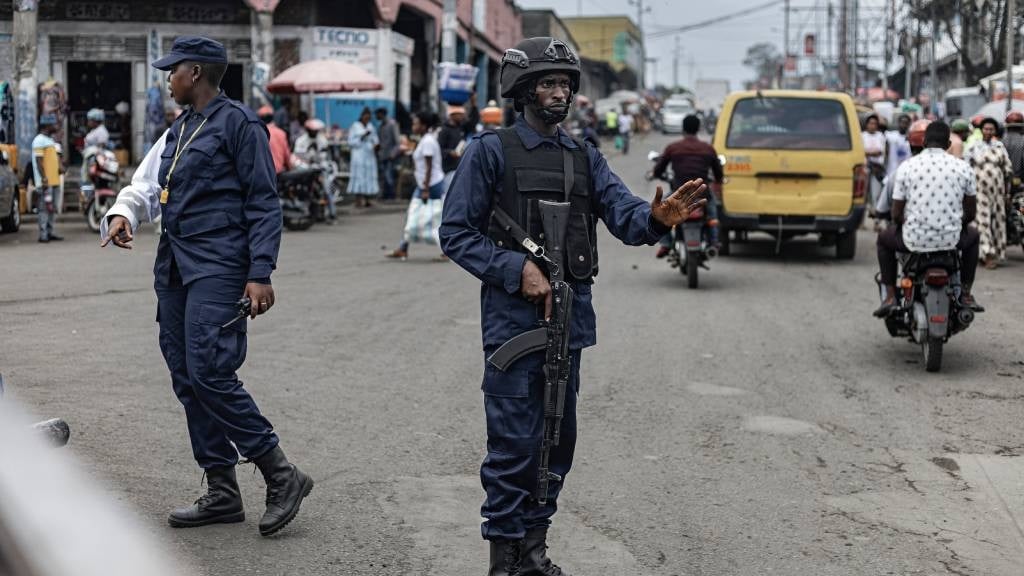
Congolese traffic police officers affiliated to the M23 fighters direct traffic on the roads around the Birere Market in Goma. (Michel Lunanga/AFP)
AFP
Some people on the ground,appear to have already judged Kabila in the court of public opinion.
"It's disappointing to see that a former president,who wears the hat of senator for life,in a country he led for 18 years,is leading a rebel group that,despite its slogan of liberation,kills poor people,and all this with the sole aim of regaining power," said Caleb,a student from Goma.
But Muya believes that amid the ongoing situation and all its compounding dimensions - with a total of more than 120 rebel groups operating in the DRC - the government and opposition players alike should generally tread with more caution.
ADVERTISEMENT
Kabila's role in peace efforts
While the fragile truce in the DRC is still subject to further talks,Kabila has made no secret of his ambitions to participate in the peace efforts.
"He was head of state for 18 years. He is capable of speaking to rebels and the government in Kinshasa. Kabila has a good rapport with Rwanda and other regional players in the DRC conflict," Muya emphasised,adding that he could be an asset as long as he pursues mediation efforts "in cooperation with the current government".
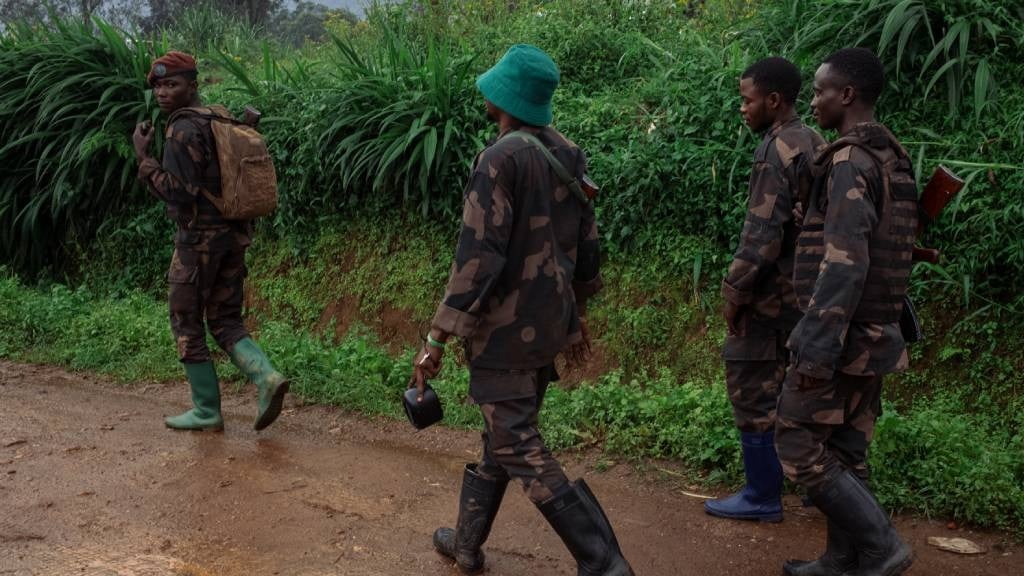
Soldiers of the Armed Forces of the DRC (FARDC) march along the road in the hills above the town of Lubero,North Kivu,in the east of the DRC. (Philémon Barbier/AFP)
AFP
His successor Tshisekedi,views him rather as an aggressor than a peacemaker - a feeling that appears to be mutual.
Kabila has accused Tshisekedi of mishandling the conflict in the DRC by relying too much on foreign intervention rather than internal dialogue between the warring factions.
According to Muya,the two leaders have to understand that they need each other,and that the country needs their concerted efforts to establish a lasting peace.
"We are in the middle of a conflict. This is not a good way of uniting the country by excluding one part of the political system," he told DW.
This article was originally published on dw.com.
United News - unews.co.za